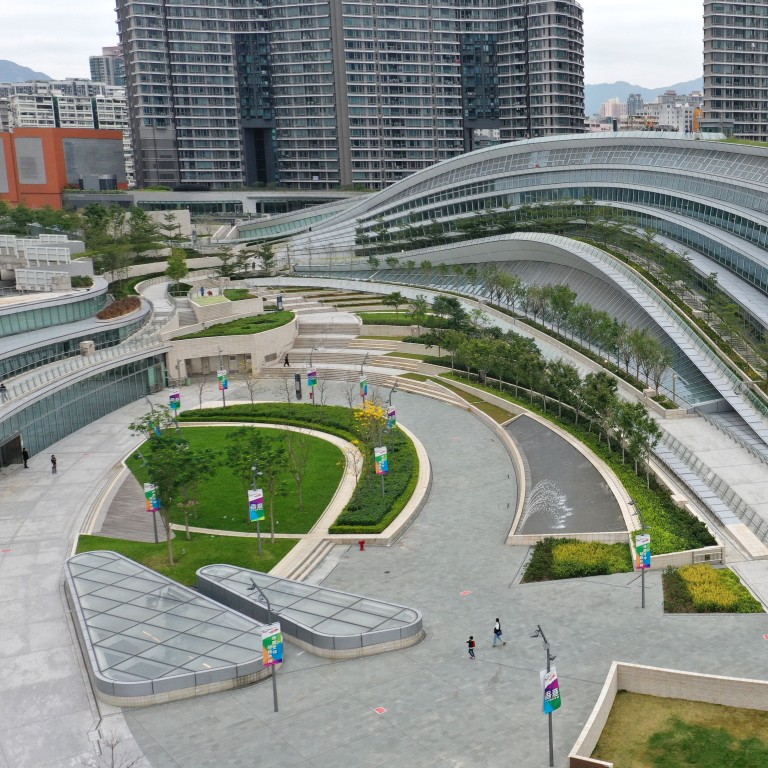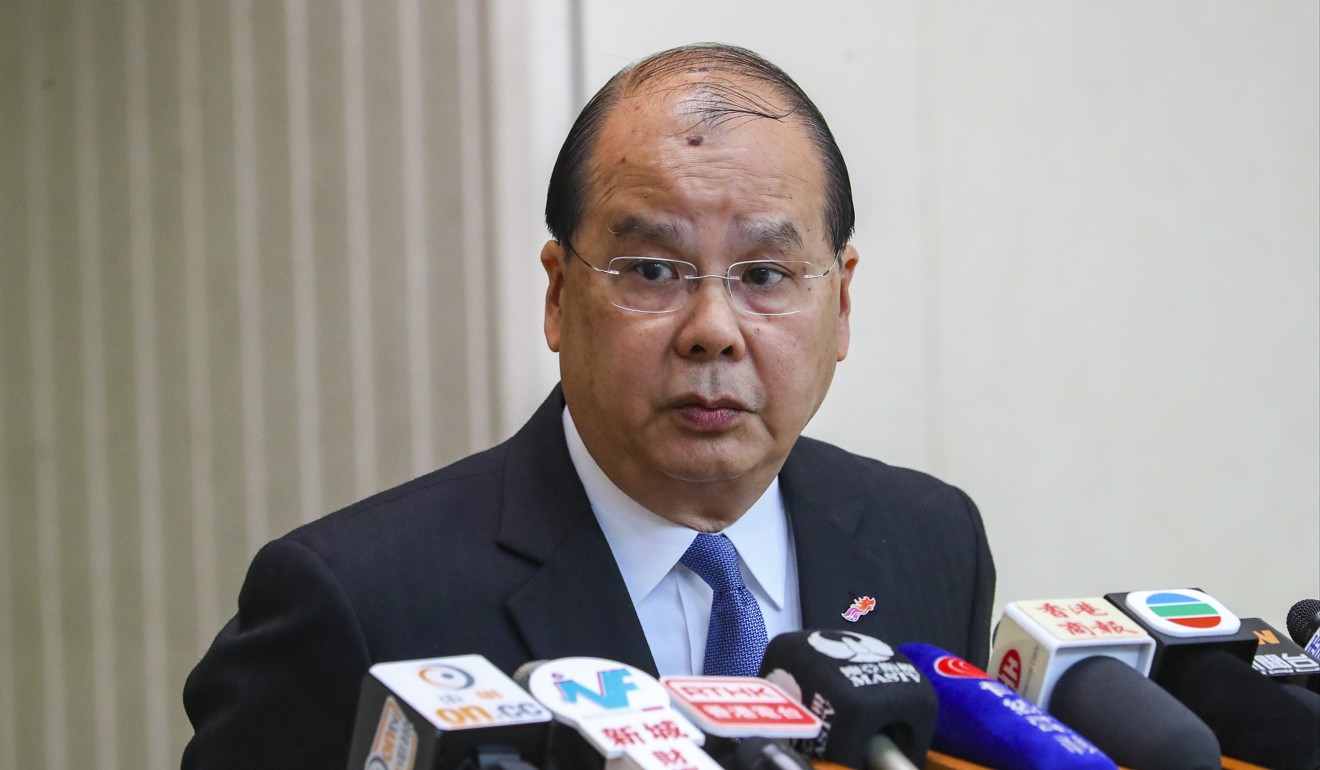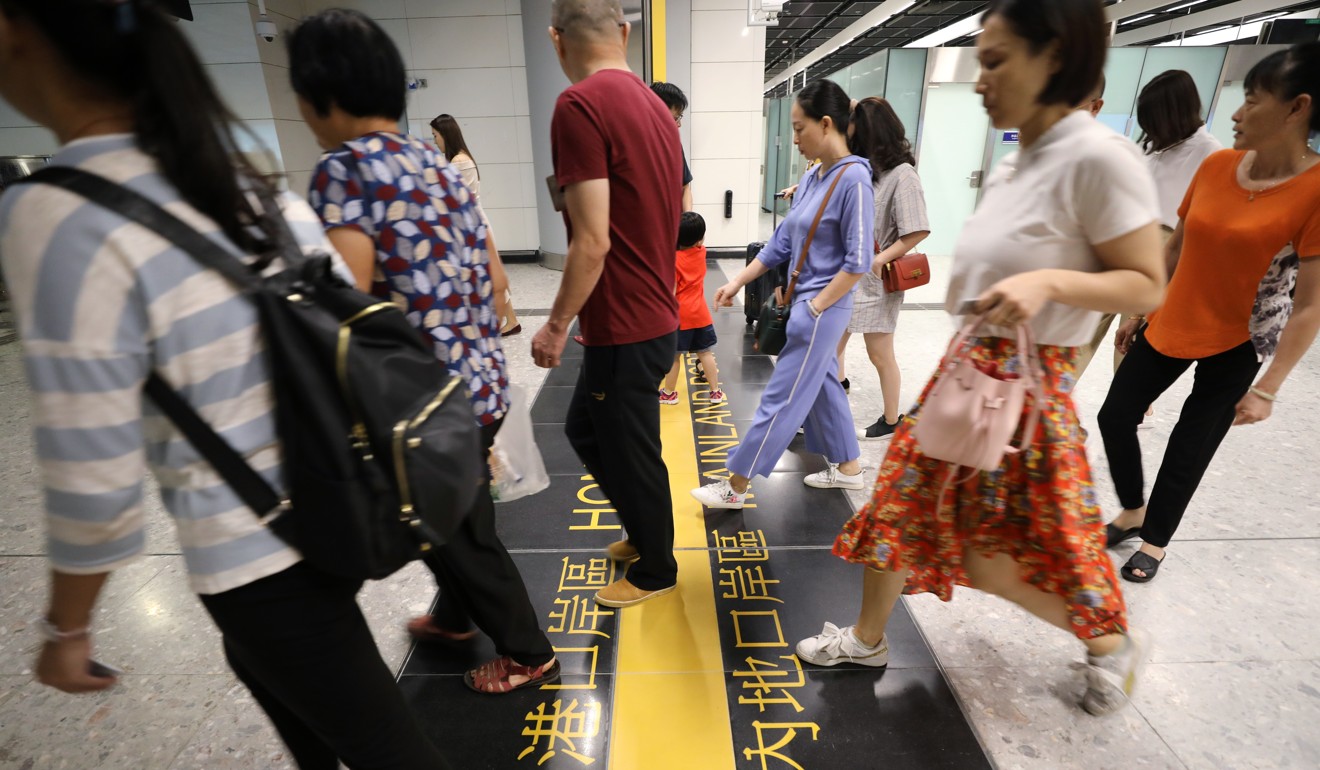
Chinese court officers did not have to tell Hong Kong government about arrest at high-speed rail station, Chief Secretary Matthew Cheung says
- Hong Kong’s No 2 official responds over concerns that city did not know about incident at West Kowloon terminus
- Notification arrangement between authorities covers criminal investigations and unnatural death, not civil proceedings
Chinese court officers did not have to notify the Hong Kong government about the arrest of a local traveller at the West Kowloon rail station the city’s chief secretary said on Saturday, as pressure mounted on him to explain if officials were told about the move.
The comments by Matthew Cheung Kin-chung, the city’s No 2 official, sparked concern among lawmakers that a notification system between Hong Kong and its mainland counterparts, regarding law enforcement at the station, allowed the latter to detain Hongkongers for reasons other than criminal matters, while keeping local authorities in the dark.
Cheung was referring to a mainland media report that a Hong Kong resident, surnamed Lung, who was wanted by a Shenzhen court, was arrested in the city by mainland court officials in October, after being stopped by immigration officers.

On Saturday, Cheung dodged media questions over whether the Hong Kong government had been told about the incident. But, he said the case did not fall under a previously agreed arrangement between the two sides, because Lung was not wanted in relation to a criminal investigation.
“Instead, it was some mainland court officials, working like Hong Kong bailiffs executing a court order, so the incident did not require notifications under the mechanism,” he said.
According to Nanfang Daily, Lung had failed to return 1 million yuan (US$145,450) to a former buyer of his house in a Nanshan District Court ruling over a dispute in 2015.
A Security Bureau spokesman said under the existing mechanism, mainland authorities should notify the Hong Kong government when a local resident is subject to “criminal compulsory measures", or dies an unnatural death.
Mainland China will only be charged HK$1,000 per year for high-speed rail terminus
Criminal compulsory measures include detention, arrest, release on bail, and residential surveillance of suspects of criminal offences, the customs department, and mainland public security authorities, are among those groups involved in the information-sharing arrangement.
Under the joint checkpoint arrangements at the station, national laws are applied in the mainland port area, but pan-democrats have long argued the arrangement contravenes the Basic Law, the city’s mini-constitution.
The Basic Law states that no mainland Chinese law shall apply on Hong Kong soil, except for those relating to defence, foreign affairs and “other matters outside the limits” of the city’s autonomy.
Pro-democracy lawmakers are not happy with the answers over the notification system, which does not include “administrative detention”, which is a common practice on the mainland before a criminal investigation is lodged.

Civic Party lawmaker Tanya Chan blasted officials for being irresponsible. She said the cooperation arrangement stated who could enforce the law at the West Kowloon station, but it appeared that anyone could come and exercise their powers.
“Hong Kong is like a doorless chicken coop,” Chan said. “How do you know who they are? Hong Kong is not familiar with which kind of laws are enforced by which mainland officials.”
Chan added that when mainland immigration officers stopped the local resident, they should have reported it to the Hong Kong government.
Democratic Party lawmaker James To Kun-sun noted that the existing mechanism did not cover detention arising from civil proceedings, as was the case with Lung.
He said if someone was detained under such a procedure, and would not be released unless they divulged certain information, or paid money, the Hong Kong government should also be told.
Has West Kowloon joint checkpoint case opened an ‘even larger loophole’?
Chang Boyang, a civil rights lawyer on the mainland, agreed that the detention of Lung was not one of the criminal compulsory measures, according to descriptions in the newspaper’s report.
“He was involved in a civil case, and his movement was restricted under the court's order,” Chang said.
“Such border control is usually an administrative measure. The purpose of this measure is to prevent people running from their unfinished duties before the court."
Stephen Hung Wan-shun, a Hong Kong criminal lawyer, also found no problem with court bailiffs stopping, or removing Hong Kong residents in the area, as it is under mainland jurisdiction.
He said under the mainland court system, a debtor would have to comply with court order and ran the risk of their movement being restricted if they did not repay the money.
Hung said based on a past visit to China’s top court, the country had built a nationwide network to enforce court orders, and any movement of an individual involved could be instantly detected.
“A mainland judge could make an order that an individual is not allowed to leave a province, or not purchase ship or plane tickets,” Hung said.



